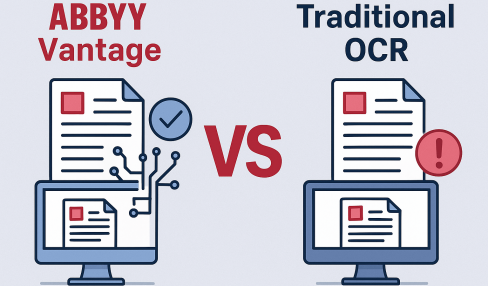Virtual Numbers vs SIM Cards: Which Is Better for International Business?
14 August 2025
6 Mins Read

- The Familiar Comfort of SIM Cards (and Why They Don’t Hold Up)
- The Trouble With SIM Cards
- Virtual Numbers: A More Modern Way to Stay Connected
- What Are Virtual Numbers?
- Virtual Numbers vs SIM Cards: A Clearer Picture
- Who Should Consider Using Virtual Numbers?
- Supporting Customers in Multiple Countries
- Running a Remote or Hybrid Team
- Freelancing or Consulting
- Managing an E-Commerce Store
- Offering SaaS or Digital Services
- A Real Example OF Virtual Numbers vs SIM Cards: One Startup’s Shift to Virtual Numbers
- Why Many Businesses Choose Freezvon
- Should You Make the Switch?
- Final Thoughts: Communication Should Work for You
Let’s Be Honest! Communication Can Make or Break Your Business. Imagine this: you’ve just launched a new product, you’re hiring remote team members, and you’re getting traction in new countries. Things are going well.
Then your support call from Berlin drops. Your developer in Buenos Aires misses a meeting because of time zone mix-ups. And suddenly, your monthly phone bill looks more like a rent payment.
That’s when you realize—communication isn’t a nice-to-have. It’s a lifeline.
If you’re working internationally, staying connected needs to be easy, reliable, and affordable. But too often, we default to what we know—SIM cards, roaming plans, and juggling multiple devices.
Is that the best we can do?
Let’s look at the duel between Virtual Numbers vs SIM Cards—and why more businesses are making the switch.
The Familiar Comfort of SIM Cards (and Why They Don’t Hold Up)
For years, SIM cards were the go-to. Pop one into your phone, connect to the local network, and off you go.
It’s simple. It works. And honestly, it’s what many of us still rely on when we travel or expand internationally.
But if you’re doing business across countries—or planning to—SIM cards can start to feel like a clunky workaround.
The Trouble With SIM Cards
SIM cards are essential for better mobile connectivity. However, it can encounter a lot of issues. First of all, the roaming charges are pretty expensive. Now, you might be thinking, “Oh! We have the international plans, right?”
But that is not the case, even the international plans are not cheap!
Secondly, the SIM cards are location-bound. You can use one SIM per country. So, what happens when you are operating in three specific markets? Well, in that case, you will need three specific phones and SIM cards.
Now, to use a SIM card, you will need a good physical device. If you are working with a team, you will have to ship hardware across time zones.
There is also very little flexibility when you are using SIM cards. You do not get any advanced call features, smart routing, or tool integration that your business actually uses.
Lastly, it’s hard to manage at scale. Coordinating dozens of SIM cards for a growing remote team is nobody’s idea of a good time.
SIMs still make sense for some personal use or quick trips. But for a business that’s going global, it’s time to rethink the setup.
Virtual Numbers: A More Modern Way to Stay Connected
Now imagine this instead:
You log into a dashboard. Pick a country. Get a phone number. Start making and receiving calls through your laptop or smartphone—no SIM card, no shipping, no waiting.
That’s how virtual numbers work.
What Are Virtual Numbers?
A virtual number is just like a regular phone number—but it isn’t tied to a SIM card or a physical phone. Instead, it lives in the cloud and runs through the internet using VoIP (Voice over Internet Protocol).
This means you can:
- Choose numbers from dozens—or even hundreds—of countries
- Use the number on any device with internet access
- Route calls to team members across the world
- Receive voicemails via email
- Set everything up in a matter of minutes
And if you ever need to scale, adjust routing, or add another number—no need to buy new hardware or deal with local telecom providers.
Virtual Numbers vs SIM Cards: A Clearer Picture
Here’s how the two compare when it comes to day-to-day business needs:
| Feature | SIM Card | Virtual Number |
|---|---|---|
| Geographic Flexibility | One country per SIM | Numbers in 150+ countries |
| Cost | Roaming fees, unpredictable bills | Affordable, flat-rate VoIP pricing |
| Setup Time | Delayed by shipping and activation | Set up online in minutes |
| Device Requirements | Needs a physical device | Works on any internet-connected device |
| Team Scalability | Difficult to manage for multiple users | Easy to expand, even for global teams |
| Call Forwarding | Limited or manual | Automated and customizable |
| Smart Features | Basic voicemail, if that | Voicemail-to-email, call recording, integrations |
Virtual numbers are simply a better fit for the kind of fast, flexible, international work that businesses are doing today.
Who Should Consider Using Virtual Numbers?
You don’t have to be a big enterprise to benefit from virtual numbers. In fact, they’re often most valuable for small teams, freelancers, and growing startups.
Here are a few common situations where virtual numbers really shine:
Supporting Customers in Multiple Countries
You can offer a local number in each region you serve. It builds trust, improves response rates, and makes your business feel close—even if you’re working from another continent.
Running a Remote or Hybrid Team
Virtual numbers let your team stay connected under one system, no matter where they’re based. Everyone can make and take calls using the same setup.
Freelancing or Consulting
If you’re working with clients internationally, a virtual number gives you a professional, local presence without giving up your personal number—or buying extra phones.
Managing an E-Commerce Store
Customer service matters, and virtual numbers let you handle inquiries from different markets without creating bottlenecks or paying high support costs.
Offering SaaS or Digital Services
Sales, demos, onboarding—everything can be routed more efficiently through country-specific numbers, no matter where your team is working from.
If any of that sounds familiar, it might be time to upgrade how you communicate.
A Real Example OF Virtual Numbers vs SIM Cards: One Startup’s Shift to Virtual Numbers
Let’s look at a real-world case.
A tech company based in Prague was expanding to North America and Asia. At first, they tried prepaid SIMs and third-party call forwarding services. It was complicated, hard to manage, and resulted in numerous missed calls and delayed responses.
Eventually, they switched to Freezvon’s virtual number service. Here’s what happened:
- They activated virtual numbers for Canada, the US, and Hong Kong—all within 48 hours.
- They routed calls to different team members based on location and working hours.
- Their helpdesk software synced with their phone system, so every call was logged automatically.
- Their communication costs dropped by nearly half.
The result? Happier customers, fewer missed opportunities, and a setup that actually worked for a global team.
Why Many Businesses Choose Freezvon
There are lots of VoIP providers out there. What makes Freezvon worth checking out?
Here’s what stands out:
- Access to numbers in over 150 countries
- Quick, hassle-free setup
- A full range of features: voicemail, call recording, fax-to-email, SIP trunking
- Integration with business tools like CRMs or helpdesk platforms
- Helpful, multilingual support—especially useful if your team is spread out
Freezvon isn’t just about selling phone numbers. They understand what it’s like to grow a business across borders—and they’ve built tools to make that easier.
Should You Make the Switch?
If your business is already working internationally—or planning to—it’s worth asking:
- Are you spending more than you should on communication?
- Are missed calls or delays costing you deals or customer trust?
- Is your team juggling tools that weren’t designed for how you work now?
- Could better phone tools help you offer a more professional, global experience?
If the answer is yes, even to one of those, virtual numbers could be a big step forward.
Final Thoughts: Communication Should Work for You
When you are running a business across countries and time zones, it can be challenging enough. Your phone system shouldn’t make it harder.
When it comes to Virtual Numbers vs SIM Cards, the Virtual numbers offer the kind of freedom and control that modern businesses need.
They cut costs and simplify workflows. This way, they can help your team (and your customers) stay connected—wherever you are.
You don’t have to overhaul everything overnight. But if your current setup is holding you back, it might be time to try something better.
How could it work for you?
- Explore how virtual numbers can simplify global communication
- Try a number in the country where you’re growing
- Test the setup without long-term commitments
Start with Freezvon today and give your business the flexibility it deserves.



















Comments Are Closed For This Article